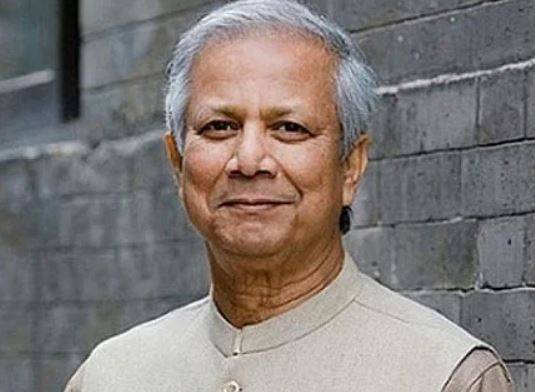Dhaka (Agencies): Nobel Peace Prize laureate Muhammad Yunus was named chief adviser of Bangladesh's interim government on Tuesday, a day after Prime Minister Sheikh Hasina resigned and fled the country following a violent crackdown on a student-led uprising.
Yunus was appointed to the post by Bangladesh President Mohammed Shahabuddin after he held meetings with student leaders and chiefs of the three military services, local media reported late on Tuesday, citing a statement and officials from the president's office.
Yunus, 84, and his Grameen Bank, a microcredit organization, won the 2006 Nobel Peace Prize for work to lift millions out of poverty by granting small loans of under $100 to the rural poor of Bangladesh.
Known as the "banker to the poor" flirted briefly with a political career, attempting to form his own party in 2007. But his ambitions were widely viewed as having sparked the ire of Hasina, who accused him of "sucking blood from the poor".
In 2011, Hasina's government removed him as head of Grameen Bank, saying that at 73, he had stayed past the legal retirement age of 60. Thousands of Bangladeshis formed a human chain to protest his sacking.
In January this year, Yunus was sentenced to six months in prison for violations of labour law. He and 13 others were also indicted by a Bangladesh court in June on charges of embezzlement of 252.2 million taka ($2 million) from the workers' welfare fund of a telecoms company he founded.
Although he was not jailed in either case, Yunus faces more than 100 other cases on graft and other charges. The Nobel laureate denies any involvement and said, during an interview with Reuters, the accusations were "very flimsy, made-up stories".
The interim government will fill a power vacuum left after Bangladesh's army chief announced Hasina's resignation in a televised address on Monday that followed weeks of deadly violence that ripped through the country, killing about 300 people and injuring thousands.
The interim government is also expected to hold elections soon after taking charge. Yunus is expected to arrive in Dhaka on Thursday after a medical procedure in Paris, a spokesperson said.
Earlier on Tuesday, President Shahabuddin dissolved parliament, clearing the way for the interim government and new elections.
His office also announced that the leader of the opposition Bangladesh Nationalist Party, Begum Khaleda Zia, a former prime minister who had feuded with Hasina for decades, had been freed from house arrest.
Student protesters had threatened more demonstrations if parliament was not dissolved.
The unrest began last month in the form of protests against civil service job quotas and then escalated into wider calls for Hasina to stand down.
Hasina, 76, had been in power since 2009 but was accused of rigging elections in January and then watched millions of people take to the streets over the past month demanding she step down.
The movement that toppled Hasina rose out of demonstrations against public sector job quotas for families of veterans of Bangladesh's 1971 independence war, seen by critics as a means to reserve jobs for allies of the ruling party.
About 300 people were killed and thousands injured in violence that had ripped through the country since July.
After demonstrators stormed and looted the prime minister's lavish residence on Monday, the streets of the capital Dhaka were again peaceful on Tuesday, with traffic lighter than usual and many schools and businesses that shut during the unrest still closed.
Garment factories, which supply apparel to some of the world's top brands and are a mainstay of the economy, will reopen on Wednesday after being shut due to the disruptions, the main garment manufacturers' association said.
Hasina's flight ended her 15-year second stint in power in the country of 170 million people, which she had ruled for 20 of the last 30 years at the helm of a political movement inherited from her father, state founder Mujibur Rahman, after he was assassinated in 1975.
Since the early 1990s Hasina had feuded and alternated power with her rival Zia, who inherited her own political movement from her husband Ziaur Rahman, a ruler himself assassinated in 1981.


